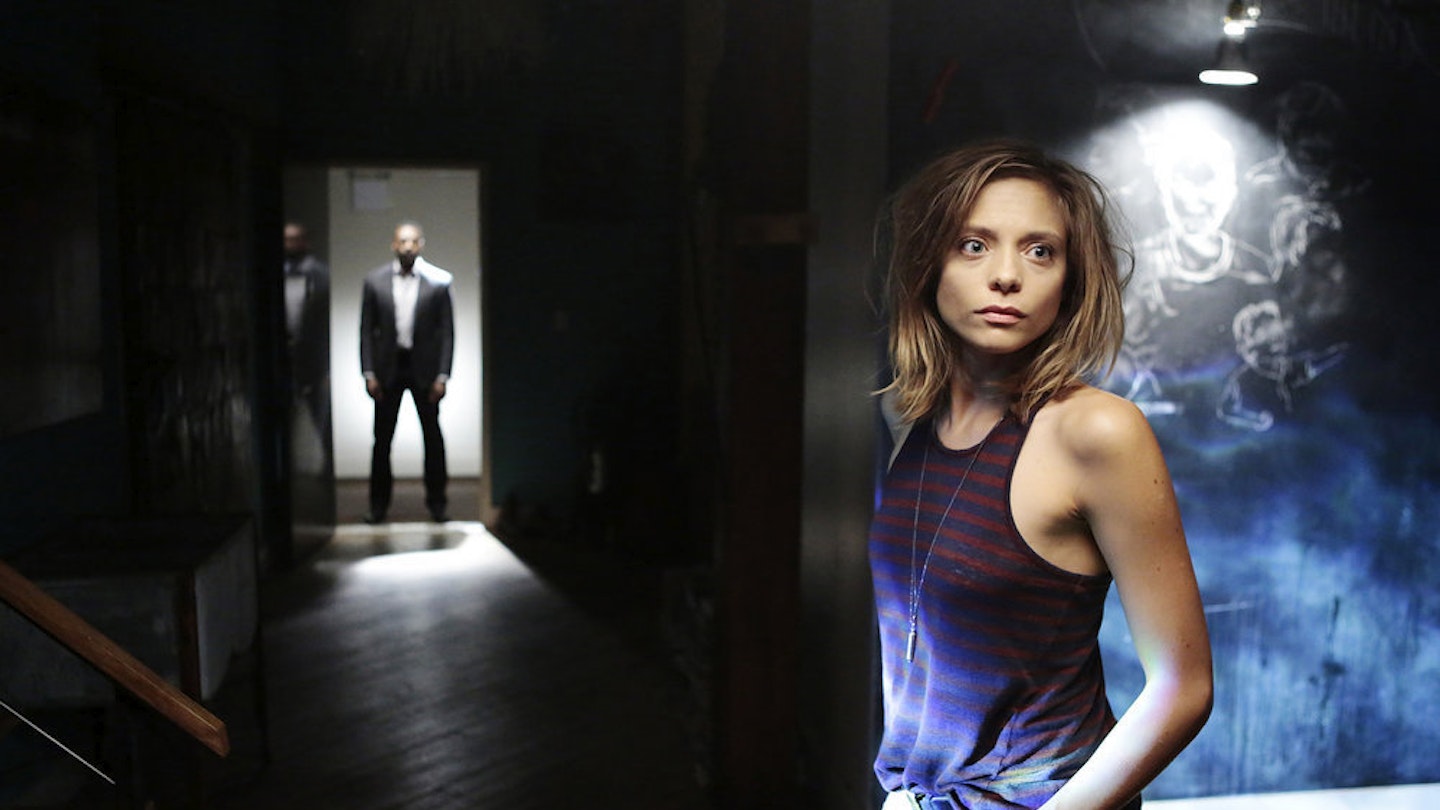You’d think Gale Anne Hurd had inflicted enough harm on the world by unleashing hordes of zombies in The Walking Dead and Fear The Walking Dead, but now the producer is determined to invade our dreams and scare the crap out of us with, respectively, Falling Water and Lore.
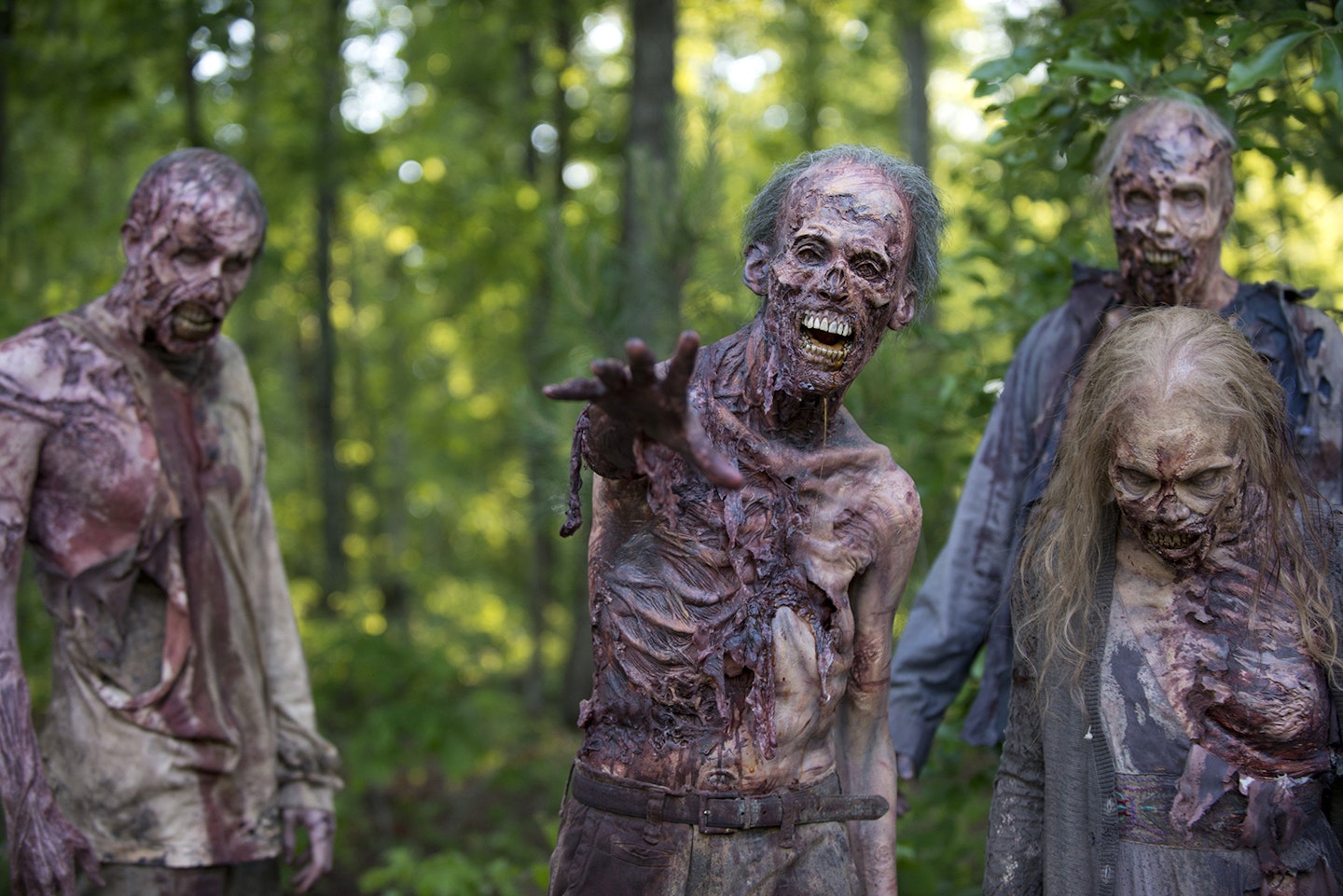
Falling Water, co-created by Hurd, Blake Masters and the late Henry Bromell, follows three people who are complete strangers to each other, but what they gradually discover is that their dreams are somehow connected. Each one of them is missing something in their life, the answers to which could very well be found in those dreams. Beyond that, there are elements of their night visions that could be dealing with the fate of the entire world.
Lore, recently announced by Amazon with The X-Files’ Glen Morgan as showrunner, is a ten-episode series that will debut in 2017 and is based on the popular podcast of the same name created by Aaron Mahnke. According to Amazon, the series “combines narration, historical mixed media, and dramatic scenes to bring to life terrifying but true stories. Celebrating the origins of the horror genre, Lore explores the real-life stories behind pop culture’s most legendary horror characters and myths, such as vampires, zombies, werewolves, ghosts, serial killers and witches.”
In the conversation that follows, Hurd discusses Falling Water and Lore, while reflecting on some of the challenges of The Walking Dead.
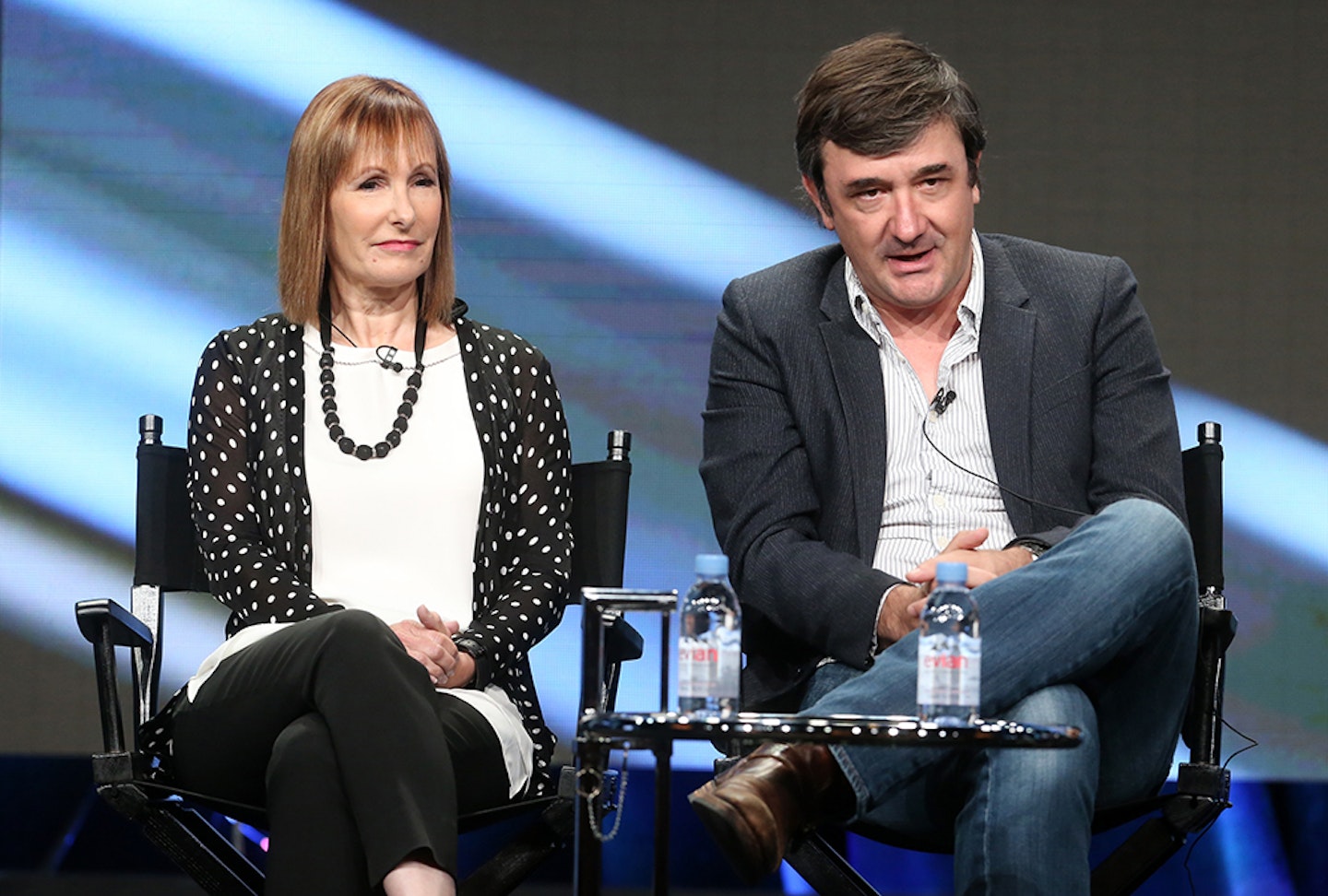
In America, the show was given the green light by the USA Network. Why them?
It's much easier telling people why now, because of Mr. Robot. It was when the pilot was given the green light and people didn't know that USA was going to be the home of a show as compelling, interesting and timely as Mr. Robot, but they knew where they wanted to go and Falling Water fit within that framework. From that point it was ours to screw up. I mean, if we got the pilot right there was a good shot that they would feel that the audience that enjoyed Mr. Robot would find this a great, compelling program; very different, but equally compelling. That's what we hoped.
Is there anything specific that draws you to a project?
I was lucky, because there was already a spec script that Blake Masters had written with Henry Bromell, so that's really a producer's dream. It's not someone comes in and pitches you something and in a half hour they can make it sound fantastic, but then you realize it's missing a lot of things when you read it. I was able to read it and say, “You know what? This is a journey I want to go on." And at the end of the day, I'm too old, I've done too many things. It's got to be the right people; someone like Blake who knows where the series is going and he can tell me that, who has the same instincts that I do as to how to bring it to life. Then we attracted a talent like Juan Carlos Fresnadillo, who did Intacto and 28 Weeks Later, to direct the pilot, and he was on the same page. Then you're okay; not only can this be a great pilot, but this can live on as a series.
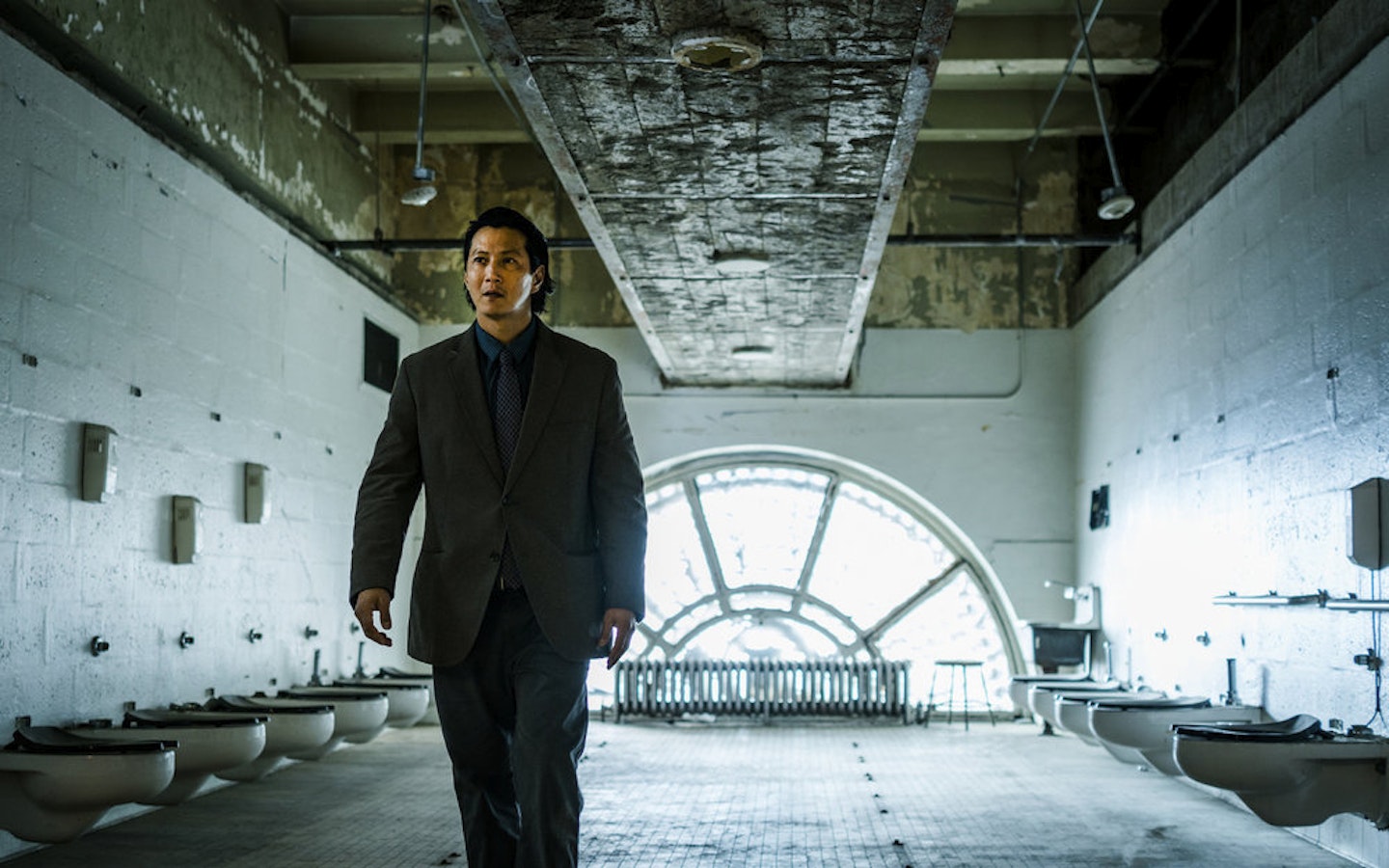
How does this compare to the other shows that you're attached to as a producer?
You know, it's very different. With Walking Dead, there was a comic book with a huge existing fan base. Obviously when we brought Walking Dead to Comic-Con for the first time, the concern was that the fans might feel that we screwed it up, that we would get it wrong, that we wouldn't appreciate the canon and bring it to life properly. Especially when we announced that Andrew Lincoln was playing Rick Grimes. It's, like, "The kind of goofy guy from Love Always?" You know, that struck fear, but when we showed the promo it was, like, "Okay, great, we think we can trust the series." So with something original, the good news with that is there is no awareness, so we have to build the awareness. You don't have something preexisting you’re bringing to market, but you also have the ability to have no preconceived notions among viewers as to what it's going to look like and who's going to be in it and where it's going to go.
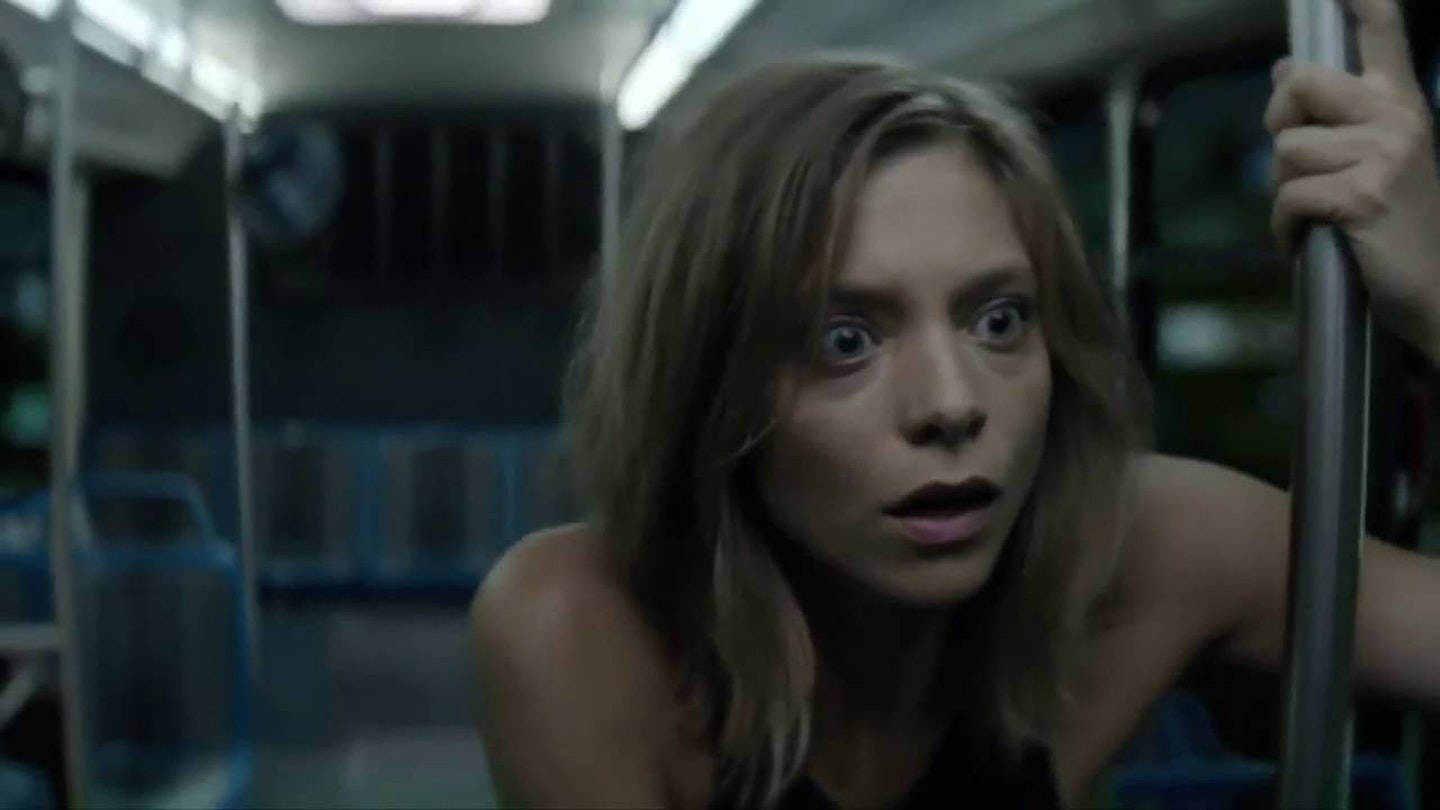
Is there a line you have to walk between dealing with the surreal material that this show seems to deal with, and appealing to a more mainstream audience?
Once again, it's fantastic that USA has Mr. Robot, a show that is dealing with some pretty compelling themes and doesn't give you answers that are all sewn up at the end of every episode. The fact that Mr. Robot continues various threads is a great education for our show, but we also don't keep the mysteries going endlessly. Like in the pilot. By the end we know that Tess, played by Lizzie Brochere, is someone who's convinced she had a baby, that the baby was taken from her, but there's no evidence that she's ever had a child. At the same time, she won't be complete without the absolute proof one way or another, and she really believes that child exists. We're not going to keep that going for ten episodes and only at the end let you know whether the child may or may not be real.
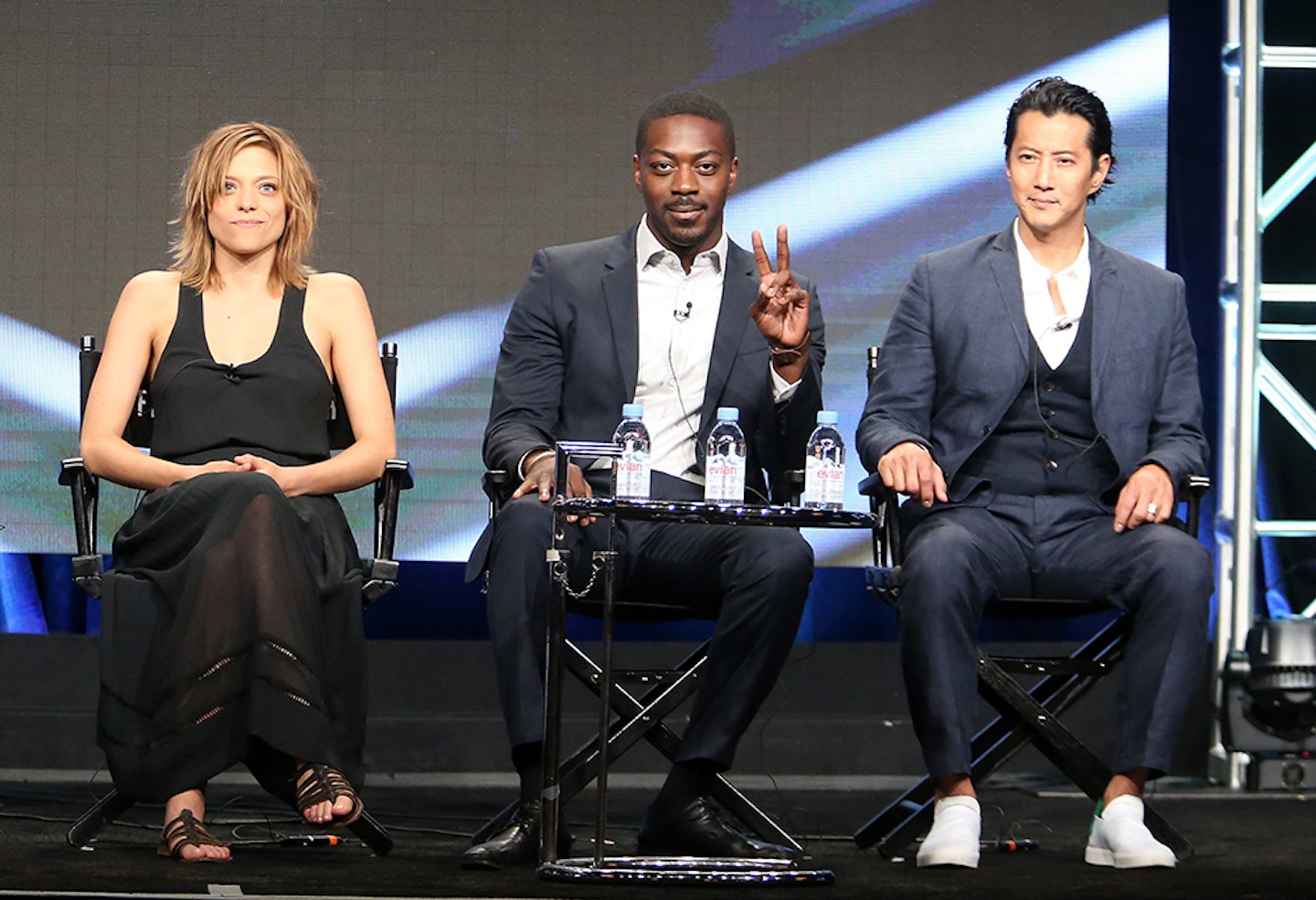
We've got Burton, played by David Ajala, who is madly in love, and the loss that he feels is the love of his life and wondering whether she is really flesh and blood and exists or if she's just part of his own dream world. Then the character of Taka, played by Will Yun Lee, who's lost his mother, not because she died but because she's been essentially comatose for years and he wants that connection. She's there, he can see her, but he can't connect with her. It's about loss of connection and loss in our world, where I think we are all very disconnected. We connect more with our devices than we do with other people and I think that's why it's so interesting that Falling Water explores a dream world in which we are all dreaming separate tiles of a larger dream, and that maybe we can connect to each other if those tiles can all come together. So there's fear of connection, but there's hope in the series as well.
As its core, what's the meaning of Falling Water?
To us it represents the barrier between the dreaming world and the waking world. It's a permeable barrier. You can pass back and forth and there's a lot of watery imagery in the series. Part of what we postulate is, is it possible to enter someone else's dreams? Is it possible that what happens in the dream world is as real to us as what happens in the waking world, and can those barriers fall away? That's part of the construct of the series.
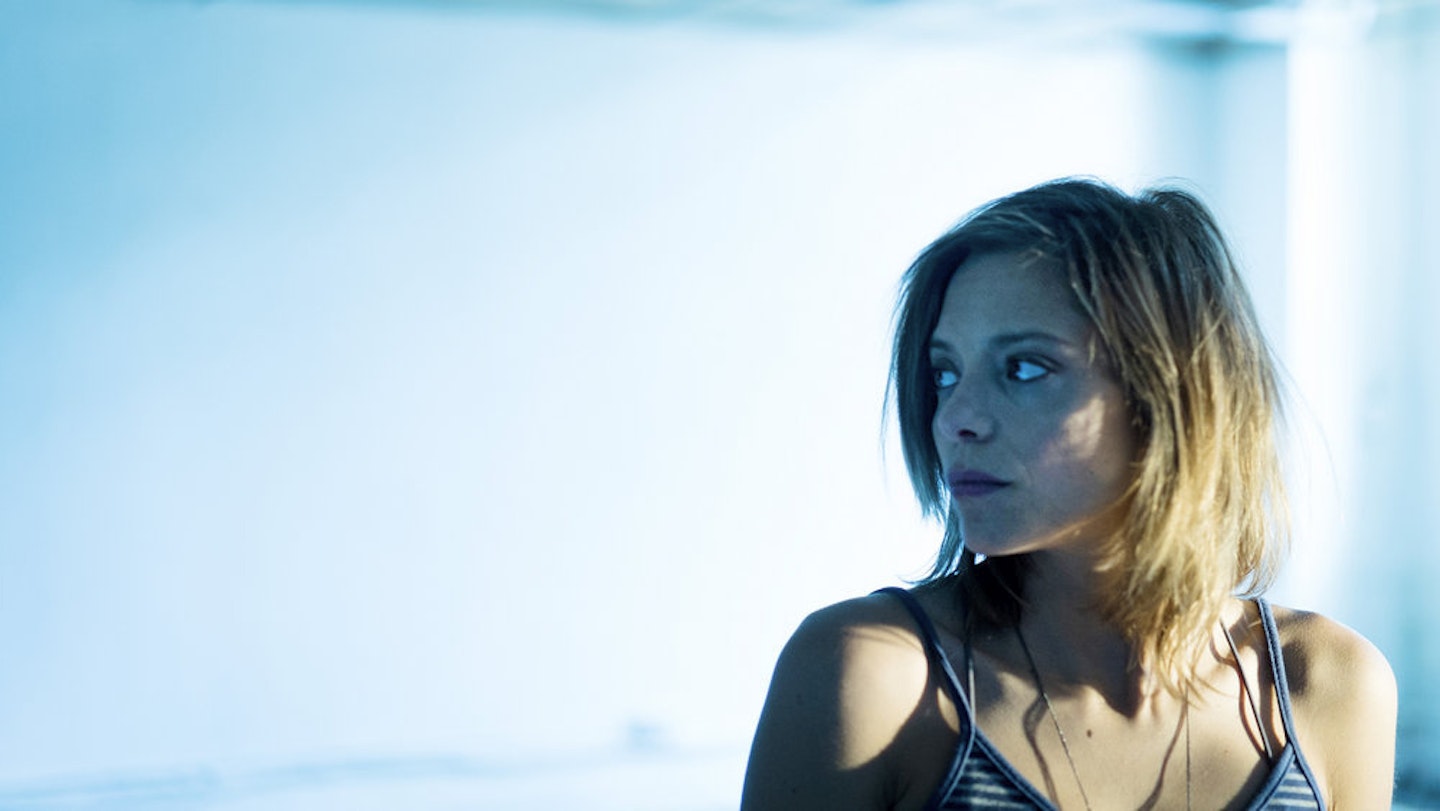
Do you like the ten-episode model? You've done a lot these. Is it a lot better to try to do a shorter run than trying to do twenty-two episodes of a show?
We got the series order for Falling Water in January and started shooting in June. Because it's complex and visually compelling, you need time to build all that and you want to make sure, because there are three central characters and it's about relationships that you can thread those all through, that you know where it's going. When you have fifteen or sixteen episodes on your shows like The Walking Dead, the pick up isn't for the whole season. The pick up is for the first seven or eight episodes, and then there's a second pick up for the last eight. You can just imagine how complex that is when you consider that each outline is twenty pages. That's a lot reading. It's a lot of writing, it's a lot of thinking, but with ten episodes it's manageable. The writers can make sure that we achieve everything and don't run out of story or don't run out of characters.
Do the characters have flaws that they have to overcome?
Our flaws are what make us human and often we are the last people to know exactly what our flaws are. Sometimes it's through our dreams that we can explore them or that they become even more evident to us. Perhaps if we can break through those fears we have of finding out the truth about ourselves, we can heal ourselves. That doesn't mean that we're going to be perfect, but I think everyone is trying to achieve some sort of acceptance. Once they've accepted themselves, it's a lot easier for them to accept other people and, once again, I think that's something that there's all too little of in the world today.
You mentioned earlier that you've been doing this for so long that you've become more selective. Do you weigh out what is worth an investment of the time required?
Absolutely. I don't want to repeat myself except if I realize that I didn't quite do it right the first time, and maybe there's a way to reinvent it. But I want to do things that are my way of either exorcising demons or exploring new worlds. The truth is, I've used dreams myself. Going back to Terminator, when we were in pre-production and then going into production, I would, in my dreams, encounter problems that were inspired by what we were going to shoot the next day. In my dreams I would have two or three different ways to solve them, and I swear to God, at least once a week if not more, one of those situations would happen and I'd already addressed it in my dream and it was incredibly helpful [laughs]. At the same time, it was like I was never escaping from my work, because even my dreams were becoming my work.
Switching gears, Lore represents your first foray into non-fiction, isn't it?
It is, which could not be more exciting. I've always been fascinated with non-fiction. If you looked in my library, you'd find far more non-fiction books than fiction. You'd find a lot of comic books and non-fiction. This is actually perfect. The podcast is fascinating and engrossing. It only launched in March 2015 and it’s already grown to 3.2 listeners a month, so obviously it’s not just addicting for me, but for a lot of people. And because all of the episodes will be available for streaming, it can be consumed like a podcast can. People can binge.
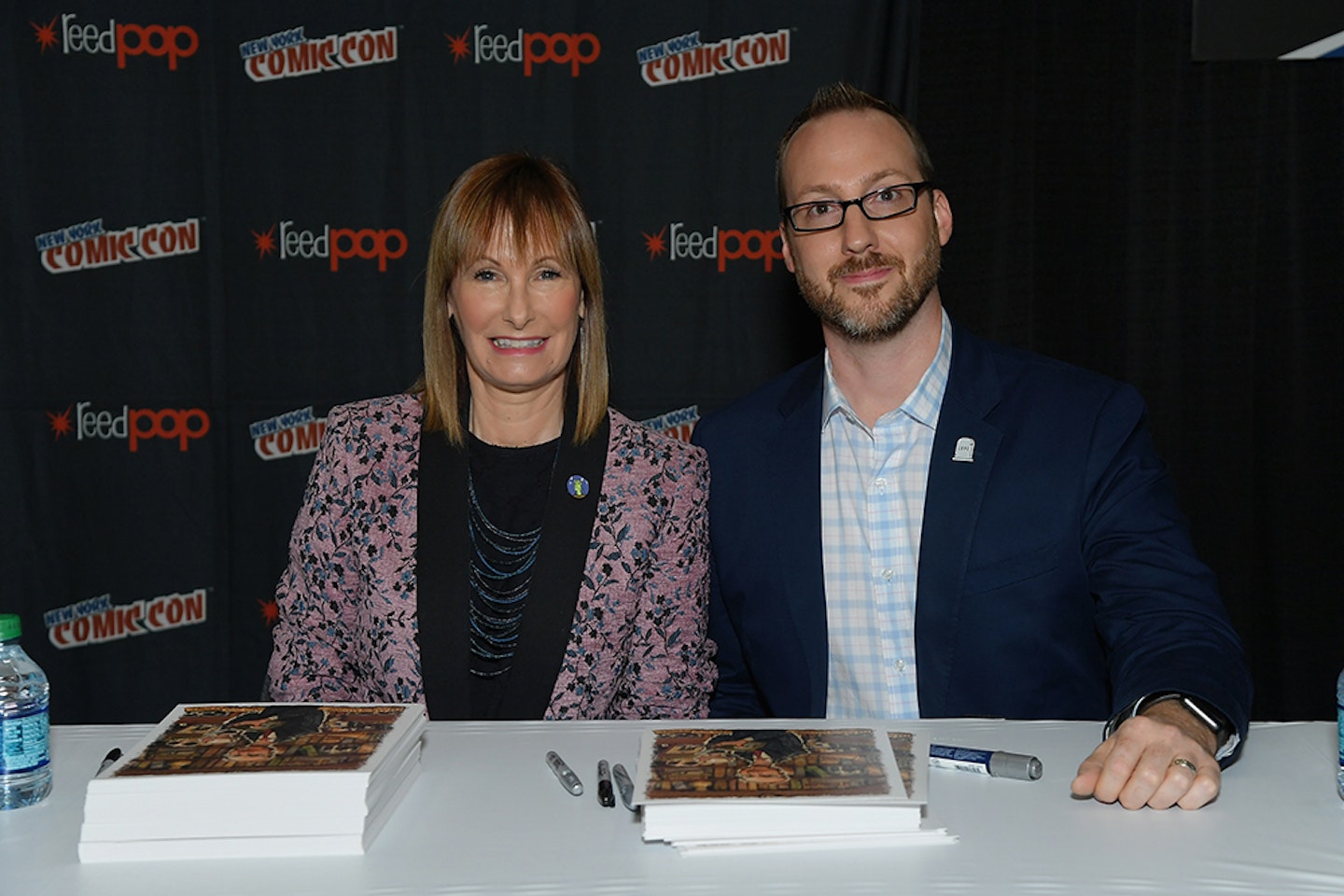
As a filmmaker, is the idea of someone binging a show over a weekend and then leaving it behind as creatively satisfying as something that unfolds more slowly?
You know what? I just love the fact that people are consuming. Let's face it, most things struggle to find an audience and, right now, we have so many opportunities. When you're on a streaming network, a streaming service like Amazon, that's perfect. People don't have to binge watch; they can watch it whenever they want. But they have that opportunity. I love the fact that with a show that is appointment television, like The Walking Dead, the water cooler chatter is now in social media. That's exciting, too.
For the TV version of Lore, are you picking cases that have already been talked about on the podcast and, if so, how are they being selected?
We're just now putting that together. We're also meeting with people from the documentary world who have crafted incredibly compelling true stories so that, as we craft this with Aaron and Glen Morgan, it really does redefine unscripted series. Right now, you can say, "Okay, Discovery and History Channel, they do a lot of those." We want people to look at this as being a reinventing. The challenge here that we're embracing is making unscripted scary. The great thing about it is this is horror at its most basic and its most frightening, because it's all true.
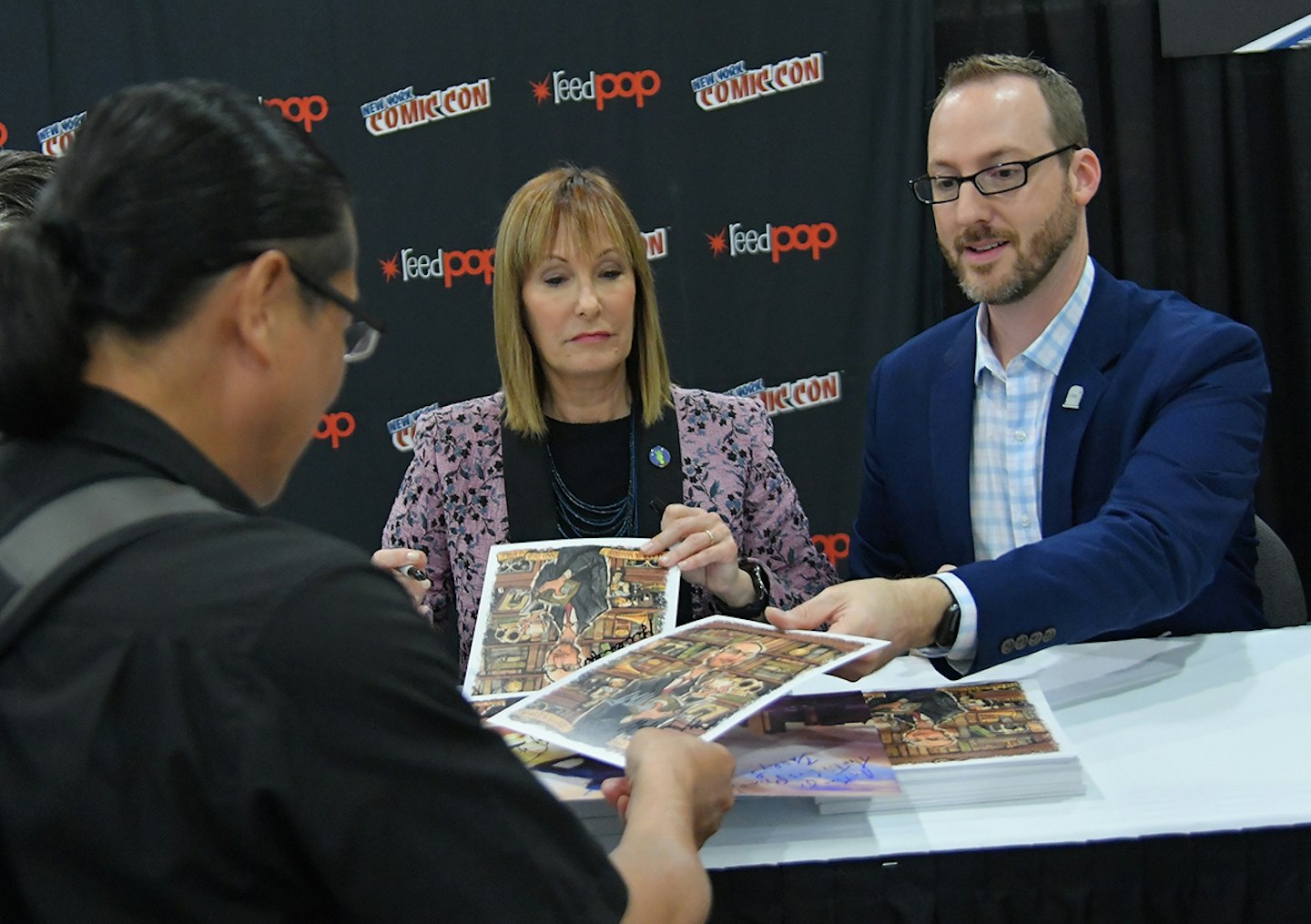
Horror has become almost mainstream nowadays. It's in every single media. Why do you think it's become so accepted by the masses?
I think that we're all afraid of the apocalypse. The feeling is that it's just around the corner, and that we're one breath away from another Hurricane Sandy, a viral outbreak, the economic collapse, earthquakes in California, fires... We all feel like the other shoe's going to drop, and that it can drop tomorrow. Horror allows us to confront those fears safely and get through them and, at the end of the day, "Thank God it didn't happen to me. I don't have to worry about that."
It's safe to say that you are involved with a variety of things, whether in television or film. How do you divide your time between all these new projects and current projects, like The Walking Dead?
It's pretty crazy. And it's tough, because I really am very involved. Anyone writer that we're considering hiring, I read. Any director that we're considering hiring for any of my shows, I watch their reels, I talk with them. I'm always on set to launch a show. I'm still on set launching The Walking Dead. I was there for four weeks in April into May for Falling Water. I was there as much as possible. On Fear The Walking Dead, I've been in Mexico. Thank God my daughter's twenty-five. She's out of the house and my husband travels a lot. It was really the guilt factor that was preventing me from doing more in the past. I enjoy being this prolific, I'm a workaholic and I have no social life.
You seem to have a genuine passion for all of this.
This is my dream come true. Look, all of us are doing what we dreamed of doing. You cannot take that for granted. You can't get jaded about it, because it is such a blessing and such an honor.
*Falling Water airs on the USA network in America, UK broadcaster TBA. Lore will makes its debut on Amazon in 2017. *
• Who is Negan in the comics? Meet The Walking Dead's new bad guy.
